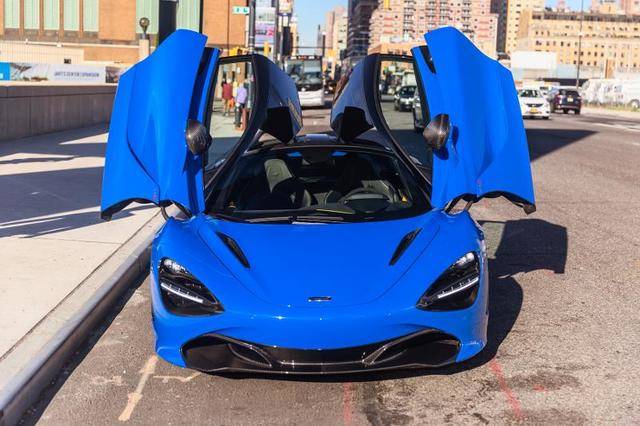1. Do you really need a new car?

In many ways, having bought a new even moderately used car in the 2010s was a decent investment. The car will still depreciate to being with zero dollars at some point, but older cars tend to perform their basic tasks far, far better than they did 30 years ago. So the investment is in peace-of-mind.
I’d say that the majority of car owners, hanging onto a car that has modern safety features and that’s all or nearly paid off is a better deal than taking the plunge on a new car. But sometimes you want a fresh set of wheels, or state-of-the-art infotainment technology, or a life event means you need a larger vehicle.
Then a new car might be the ticket. But make sure you think this one through. One key decision point: If your old car is costing you more than it’s worth annually to repair and keep running, a new car is definitely worth it.
2. What’s your new-car budget?
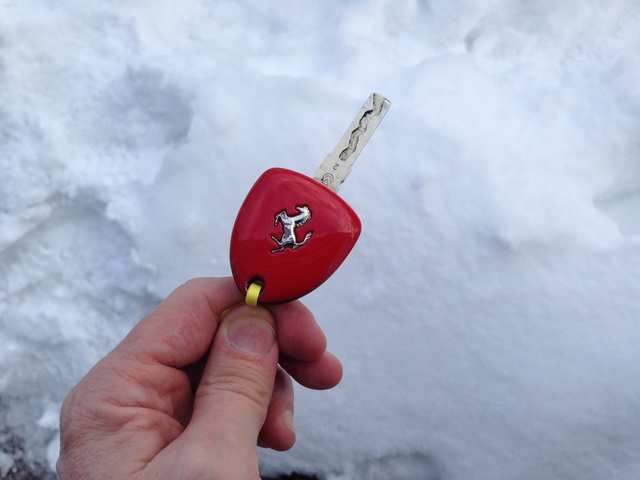
There are two ways to approach this. The first is to set a total budget for a new car, based on the purchase price, with extras such as taxes baked in.
I find that to be sort of vague, so I recommend focusing on the monthly cost. Financial advisors disapprove of this because you can wind up “buying more car than you can afford” if you stretch out the loan, and you also end up paying more in interest.
The counterargument is that buying a new car is ALWAYS a disadvantaged financial decision because cars depreciate in value. Unless you’re buying Ferraris, you lose money when you buy a car — 15% as soon as you drive it off the lot!
But lots of people need cars to get to work or drive kids around, or simply deal with life in places where there’s no mass transit and it’s difficult to walk or ride a bike. So you have to accept the irrational bargain. Once you do that, the next step is to determine what you want to shell out every month.
A good rule is to come up with a number and then knock about $50 off. That way you can always add $50 (or more) to your monthly payment if you like and pay off a longer-term loan faster. I did this with two cars on five-year loans and paid both off in about three years.
3. Buy or lease?
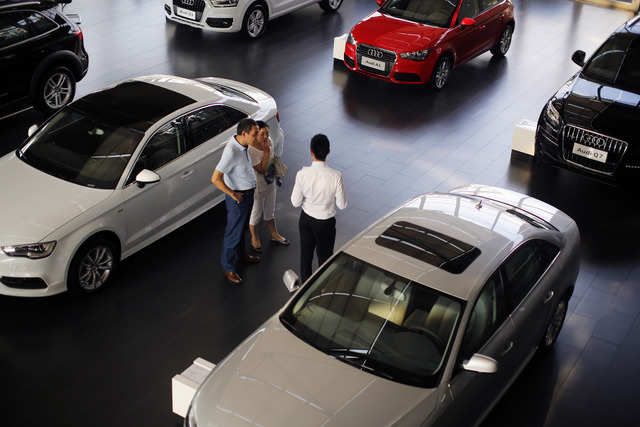
If you intend to keep the vehicle for three-to-five years once it’s paid off, reaping the benefits, then obviously you should buy.
But if you like to have the latest technology, the newest styling, and don’t want to confront maintenance hassles, then lease. Leasing is also a good choice for people who find themselves in a car-centric region, but with plans to return to a more urban area.
Just remember than on typical leases, you’re limited in the car’s mileage; dealers want to get the cars back after three years with less than 50,000 miles on the odometer so they can sell them as “certified pre-owned” vehicles.
4. What kind of new car do you want?

You can simply repeat yourself. I know plenty of folks who’ve traded in an old BMW 3 Series sedan for a new BMW sedan.
But you can also explore some fresh options. For example, folks who might have thought that SUV are gas-guzzling and uncomfortable should meet the new generation of crossovers, which combine sedan-like handling with SUV versatility.
5. What kind of new car do you NEED?
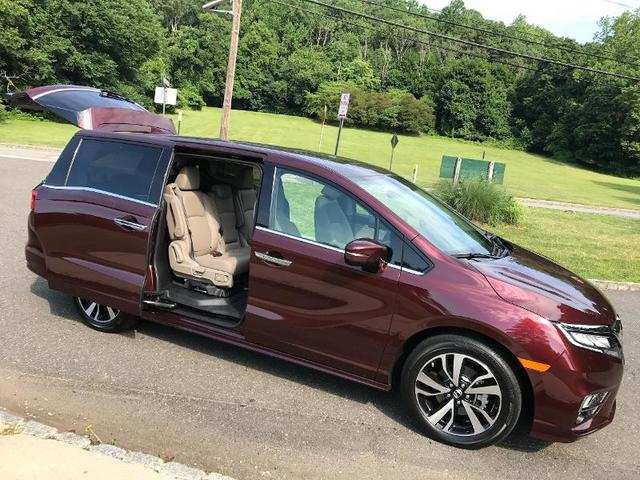
Fortunately, US car buyers have abundant choices. If you don’t want a three-row minivan, you can find a three-row SUV. If you desire something that’s fun to drive but can still haul a family around, there’s no shortage of performance-oriented crossovers.
The bottom line is that you don’t have to make compromises.
6. How much does technology matter to you in a new car?
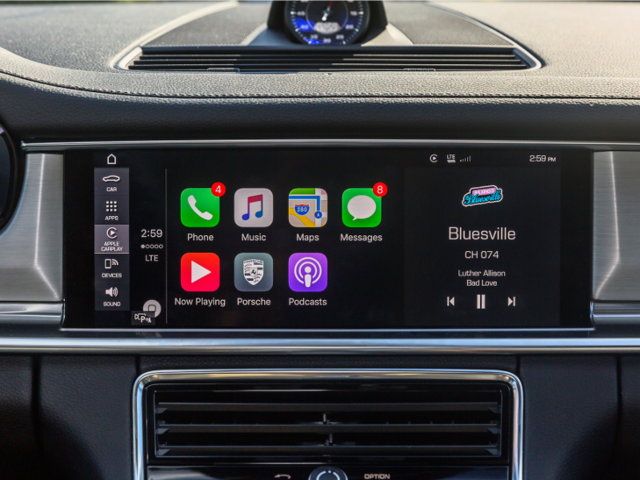
Tech sounds great, but as with most things, there’s a learning curve. If you aren’t accustomed to interacting with digital technology, then it could take you months to figure out your vehicle’s snazzy touchscreen infotainment interface.
Tech is also rather distracting, so some older owners simply tune out.
Infotainment tech is different from safety tech. A big benefit of buying a new car is getting modern driver-assist features, such as emergency braking and lane-departure warnings, to go along with crash-mitigation technologies, including crumple zones and airbags.
7. How will you arrange your financing?

You have four basic choices:
1. Pay cash. Almost nobody does this, but if you have the dough and you walk into a dealership with a lump sum, you might be able to strike good deal.
2. Arrange your own financing. You go to a bank or credit union, tell them how much you want to spend, and they organize a pre-approved package. You take this to the dealership to complete the transaction.
3. Use dealer financing. Go to the dealership, decide on a vehicle, and then ask the salesperson to take car of the money part. Assuming your credit isn’t terrible, you can usually walk in and drive out in a few hours.
4. Use captive financing. This is a subset of number 3. Your dealer can finance you through the automaker’s own lending capacity. This is relevant if you want to take advantage of advertised zero-down-payment/0% financing deals.
You’ll also want to find out what your credit score is. If you’re above 620 on the FICO scale (a combination of the three major credit reporting agencies’ assessments), you’ll qualify for prime loans. Below that and you’re subprime, which means a higher interest rate (don’t worry, you can still get a loan in many cases). If you’ve around 750, you’ll be eligible for the best rates and the best deals.
You can pull your credit reports for free once a year, and many banks now offer an online tally of your FICO score that’s updated monthly.
8. Do you have an existing relationship with a dealer?
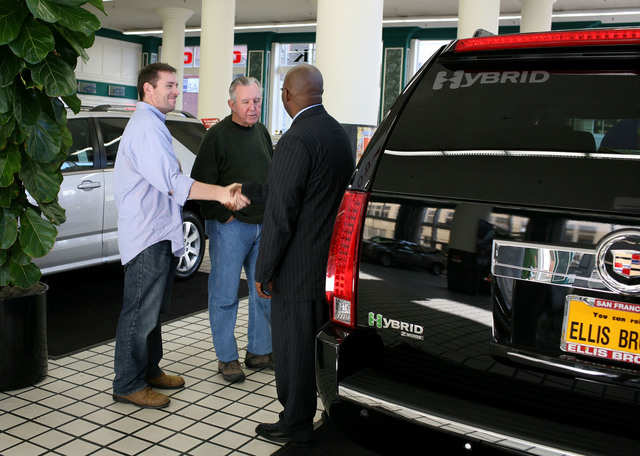
Even if you don’t have that one-to-one relationship, if you’ve been a steady customer of the dealership, you have bargaining power.
9. Have you checked with your insurance company about changes to your premiums?

Luxury cars can also cost more to insure than mass-market cars, as can exotic, high-performance rides, for obvious reasons.
Insurance companies have online tools to reassess your costs, and you can always chat with and agent on the phone or even talk to your dealer.
10. Are you prepared for the cost of owning a sports car?

Everything is more expensive, the cars are generally less reliable, and because people drive them harder, stuff breaks.
Be prepared!
11. Have you figured out what to do with your old car?
If your car is less than ten years old and has around 100,000 miles on the clock, a dealer will probably give you something for it on trade. If your car is north of that, you might be better off selling it in a private transaction, contacting a company that buys used cars, or donating it to charity. You can also hang into a used car, if it’s a funmobile for weekend use, or maybe a knock-around vehicle for home-improvement projects. Parents often keep old cars for their kids to use. Just remember that more cars in the driveway equals higher maintenance, fuel, and insurance costs. [“source=businessinsider”]



